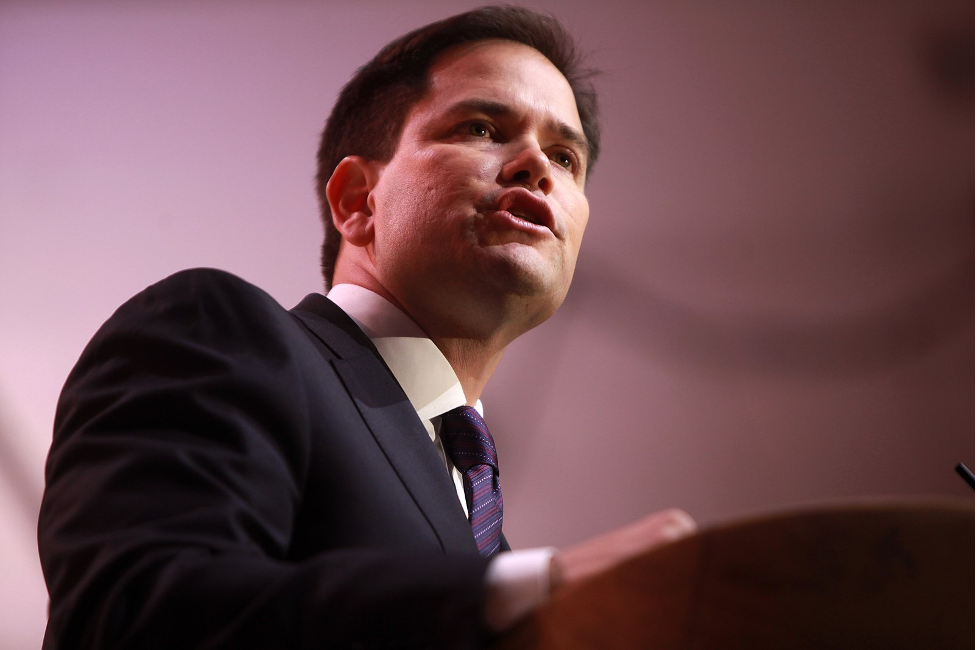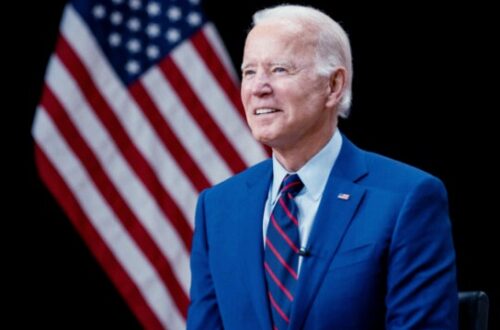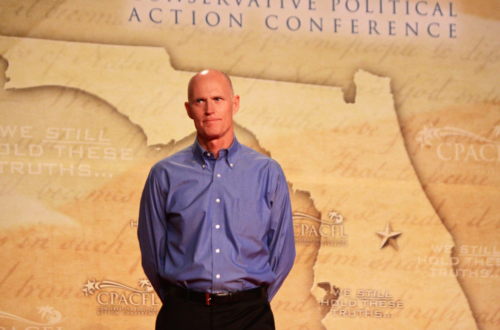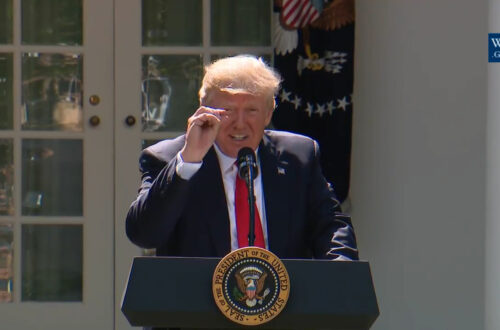“When the conflict is between working Americans and a company whose leadership has decided to wage culture war against working-class values, the choice is easy—I support the workers,” wrote Sen. Marco Rubio, R-Florida, in a shocking op-ed in USA Today regarding unionization. “And that’s why I stand with those at Amazon’s Bessemer warehouse today.”
Rubio’s editorial, published March 12, is yet another fascinating turn in the historic unionization battle playing out at an Amazon warehouse in Bessemer, Alabama.
Workers at the warehouse, called BHM1, are currently conducting a vote under National Labor Relations Board oversight on whether they will organize under the Retail, Wholesale and Department Store Union. If successful, they would become the first unionized Amazon employees in the United States.
Like most organized labor efforts, the Bessemer campaign has relied on political support from the left. Sens. Sherrod Brown, D-Ohio, and Cory Booker, D-New Jersey, led a group of 13 senators in a letter urging Amazon to allow their workers to organize freely, while Sen. Bernie Sanders, I-Vermont, announced just hours before the Rubio op-ed was published that he was inviting Amazon CEO Jeff Bezos to testify before the Senate Budget Committee on his company’s anti-union efforts.
President Joe Biden also issued a message of support to the “workers in Alabama” without specifically mentioning Amazon, which was a corporate donor to his inauguration. The statement drew praise from RWDSU and the American Federation of Labor and Congress of Industrial Organizations.
With his piece in USA Today, Rubio is the first high-profile Republican to support the Bessemer workers.
While the explicit support of a senator with an 8% lifetime score on the AFL-CIO’s Legislative Scorecard was itself rather surprising, Rubio’s rationale and rhetoric supporting his position was not.
“The Silicon Valley titan uses anticompetitive strategies to crush small businesses, bans conservative books and blocks traditional charities from participating in its AmazonSmile program,” Rubio says in the opening paragraph of his article. “Not surprisingly, it has also bowed to China’s censorship demands.”
Rubio’s argument is explicitly based around the concept of “culture war,” which has emerged in the post-Trump era as a cornerstone of conservative politics. It also nods to his well-known hawkishness toward China and the Communist Party.
The senator claims that Amazon and Bezos should not expect Republican support in its union-busting efforts due to its support for various liberal social positions. He uses the term “woke” as a pejorative several times in the article to criticize company management and executives.
In this way, Rubio’s editorial provides a glimpse at the nascent philosophy of right-wing laborism in the GOP, which is not so much about labor issues themselves as it is about appealing to the often-conservative cultural values of working-class Americans. Particularly central to this ideology is a distaste for affluent, professional-class liberals in states like New York and California.
Rubio and colleagues, such as Sens. Josh Hawley, R-Missouri, and Ted Cruz, R-Texas, have been seeking to capitalize on this ongoing realignment and rebrand themselves and their party as pro-worker.
However, the New York Timesnotes that Hawley’s office did not respond to a request for comment on the Bessemer unionization vote, and while Rubio has come out in support, the Florida Republican admits his endorsement is more about sending a message to Amazon.
This is not Rubio’s first foray into labor politics. He often recalls one of his “earliest political memories” was picketing alongside his father, an immigrant member of the Culinary Workers Union in Nevada. In 2018, the senator published an essay in The Atlanticespousing his unique position on labor.
Rubio condemns “adversarial” labor relations between workers and management, which he believes “Big Labor” unions and Democrats seek to promote. In his most recent article, he says the Protecting the Right to Organize Act, passed by House Democrats three days earlier, “would essentially mandate adversarial relations between labor and management.”
He instead argues that labor and management have common interests, and labor organizations ought to provide a community for workers to negotiate with their bosses in good faith to benefit both parties.
Rubio’s ideal view of labor relations is nuanced and openly critical of the traditional left-wing model; however, his vocal support for unionism at all is unique for the Republican Party and especially for Florida.
It reflects an emerging partisan realignment that skews the traditional socioeconomic cleavages of American politics, even if in practice such realignment is purely rhetorical.
Despite Rubio’s general opposition to traditional organized labor, the Bessemer campaign sees his endorsement as a victory. RWDSU president Stuart Appelbaum praised the senator for his position.
“Sen. Rubio’s support demonstrates that the best way for working people to achieve dignity in the workplace is through unionization,” Appelbaum stated. “This should not be a partisan issue.”
Featured image: Sen. Marco Rubio, R-Florida, speaking at the 2014 Conservative Political Action Conference. Unmodified image by Gage Skidmore used under a Creative Commons license. (https://bit.ly/3crmo0t)
Check out other recent articles from the Florida Political Review here.





